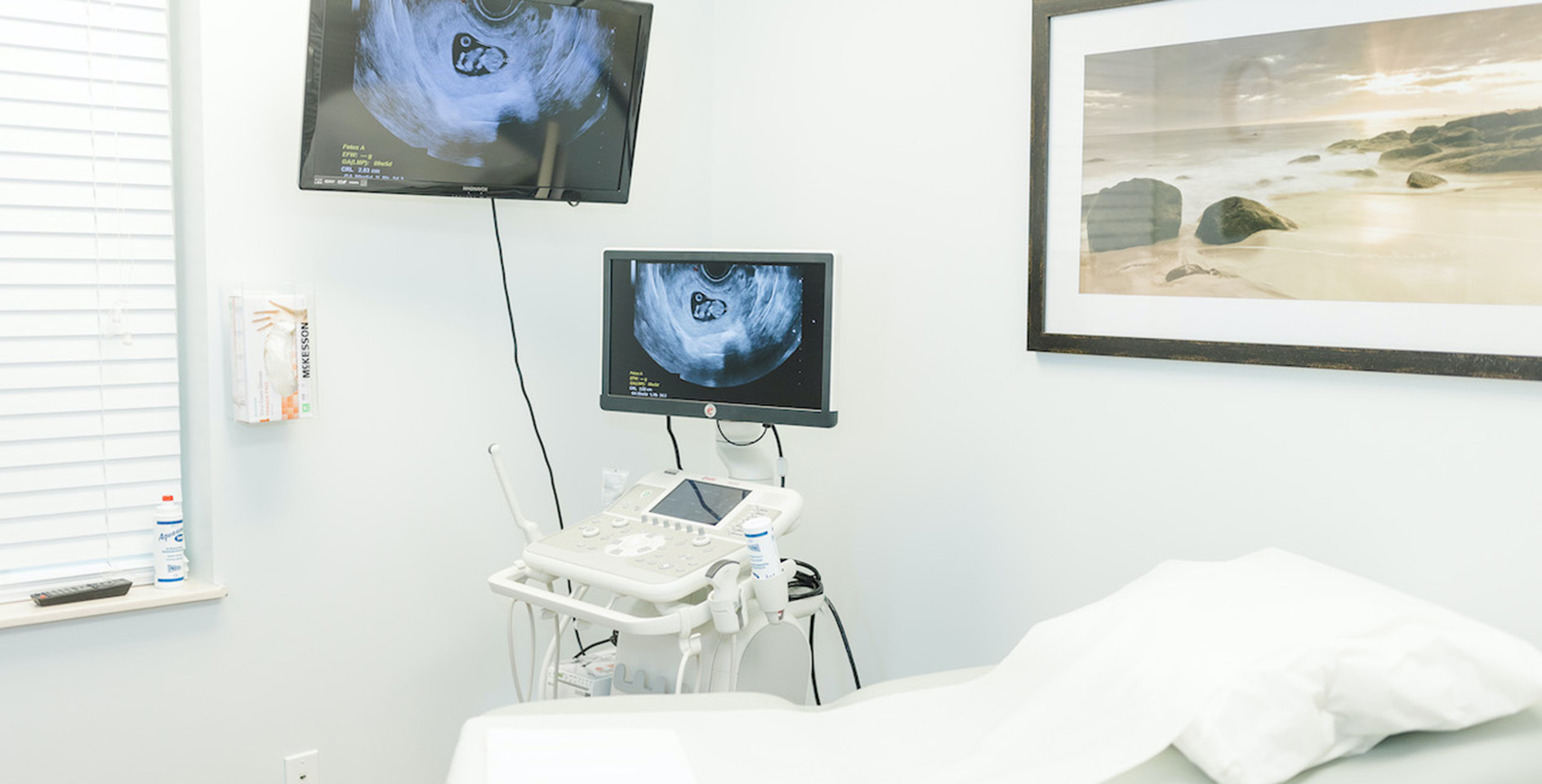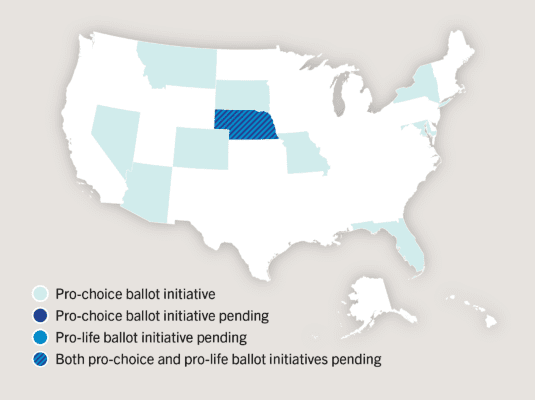Yelp announced last week that, in light of the historic Dobbs v. Jackson Whole Woman’s Health case at the U.S. Supreme Court and the continued push by many in society for greater access to abortion services, they would begin to recategorize crisis pregnancy centers (also known as pregnancy resource centers) and other faith-based clinics on their platforms to distinguish them from abortion clinics. They also have placed user warnings on these listings, indicating that crisis pregnancy centers “typically provide limited medical services and may not have licensed medical professionals onsite,” regardless of the reality of what these clinics might offer or the qualifications of those onsite. This announcement was framed in light of Yelp’s ongoing commitment to support “access to reproductive healthcare for our employees, underserved communities, and our users,” as vice president of User Operations, Noorie Malik, wrote.
This relabeling and the user warnings being applied to pregnancy care and resource centers by Yelp comes on the heels of other technology companies such as Alphabet’s Google being pressured by Congressional Democrats to limit the appearance of pregnancy resource centers in certain abortion-related search terms and results. In addition, there are calls to delete location data for those visiting abortion clinics, especially in states where abortion services may be severely limited due to the number of pro-life laws taking affect after Dobbs. In response to the push by Congressional Democrats in June, a number of Republican attorneys general sent a letter in July warning Google not to censor or suppress information about these clinics in search or map results. On Aug. 25, Google announced that it would alter how abortion clinics and pregnancy care centers appear in search results, ads, and on maps.
This particular issue is shaped by a number of significant current debates over content moderation, digital governance, and access to information in our increasingly digital public square. Dobbs has resulted in an unprecedented time of debate, and the predatory abortion industry continues in its long-established efforts to lead women to believe that the only option during an unplanned pregnancy is abortion—at times, even celebrating the practice of the abortion. Now, more than ever, technology companies must not bow to the pressure of abortion advocates, government leaders, and the abortion industry in limiting access to life-altering information for women in crisis. Access to accurate information in order to make life-and-death decisions should be at the very core of these businesses’ values.
Lack of information
One of the primary reasons that the technology industry has thrived — especially companies like Yelp, Google, and others — is that they give people access to nearly limitless information about things that matter (as well as a host of things that don’t) and help people make informed decisions. Accessing information can range from reading the breaking news to research about various topics to the details about a local restaurant, but it can also be life-saving as mothers in crisis are frantically searching for help with an unplanned pregnancy. One aspect usually left out of these conversations about vulnerable women searching for abortion facilities is that they are routinely under extreme duress and pressure from others to have an abortion regardless of their own choice. Whether it is an abusive or pressuring boyfriend or an embarrassed parent urging the woman to end the developing baby’s life, women in crisis pregnancies need to know where to turn.
Countless users, including women and their families, depend on these services to provide the right information in the midst of these often unplanned and emotional searches for help. This truth is clear, especially in light of the fact many women choose life for their preborn baby if they have access to an ultrasound image of the child in the womb. A vast amount of women have been led to believe by a deceptive pro-abortion industry that killing the baby in the womb is the primary solution in these types of situations. But with advances in technology, especially ultrasound machines, women can now see what they typically already know subconsciously—that there is a living human being growing inside of them for whom they are their only source of support, love, and protection.
While more information does not immediately solve the crisis at hand, nor is information all that is needed, pregnancy resource centers and faith-based clinics are ready and able to assist far more than abortion clinics in caring for women with prenatal, postnatal, and even postpartum services — including options like adoption. These services often include provision of clothes, food, diapers, strollers, and countless other items for women in need so that they can raise their family and care for their children, regardless of financial or material circumstances. On top of this level of holistic care, many of these life-saving clinics are also staffed with trained medical professionals, including technicians with limited OB-training that is required in order to maintain, use, and interpret the results of ultrasound machines.
The real cost of pro-abortion misinformation
Some abortion proponents, including Massachusetts Sen. Elizabeth Warren, are actively promoting misinformation that these clinics are ill-equipped, lacking medical training, and simply exist to manipulate women into not having the desired abortion. But, as mentioned above, many of these clinics actually do employ medical professionals and offer a host of healthcare services as well as holistic care, as opposed to their pro-abortion counterparts.
For example, Hope Resource Center in Knoxville, Tennessee, offers free pregnancy testing, ultrasound imaging, STD testing, well-woman exams, and pap testing. In addition, the center employs seven medical professionals. But this clinic is currently labeled by Yelp with a consumer notice reading “This is a Crisis Pregnancy Center. Crisis Pregnancy Centers typically provide limited medical services and may not have licensed medical professionals onsite.” While some will argue that this simply indicates the clinic MAY not have licensed medical professionals onsite, it is misleading to apply such a broad label that is designed to introduce doubt in the minds of users, especially if those same notices are not applied to abortion clinics offering substandard care. In an ironic twist, it has been long documented that not all abortion clinics have adequately licensed medical professionals or a full range of medical services outside of abortion. Some clinics employ doctors who lack admitting privileges at local hospitals in case an abortion goes wrong or a woman is in need of further medical treatment after the procedure. This is one reason that Google’s recent announcement about labeling ads and locations as “providing abortions” and not providing abortions is better suited than overly broad labels utilized by Yelp that introduce doubt and confusion rather than provide accurate information.
It is clear that this labeling is one-sided and meant to ensure easy access to abortion while introducing friction for obtaining life-saving information and services.
It is true that pregnancy resource centers and faith-based clinics operate from a particular ideological and religious perspective, just as any clinic or medical professional, including abortion providers themselves. It is a myth to assume that anyone can truly be neutral and simply present information without their beliefs interfering. Our beliefs will always drive our actions, no matter the perspective we come from. And it should be noted that it is abortion clinics who are actually limiting the information available to women and pushing abortion services as the best option for women in crisis. This illustrates that just as Christians ought to unapologetically celebrate the Dobbs ruling and the passing of major pro-life legislation across states, we also must acknowledge that this ruling simply represents the first step among many in combating the abortion industry.
If Yelp and other information providers actually want to provide reliable information and assist vulnerable women, they would not apply misleading labels, delist, or remove this life-saving information from those who need it most. YouTube, for example, decided in late July to update its policies and remove certain abortion-related content and misinformation from its platform, but it appears it did so without pushing a particular view of abortion. Google, likewise followed suit with labeling that brings clarity, not introducing confusion or misleading the public about what clinics may or may not offer.
Limiting access to information based on partisan and ideological beliefs is the complete opposite of what these companies claim to stand for and support. Given that abortion is on the ballot in many states with mid-term elections coming this November, technology companies must resist the partisan push to remove information and limit the options of women facing these unplanned and crisis pregnancies. Women and their children deserve accurate and honest information, especially as Christians and other pro-life groups seek to push back against the lies and misleading information promoted by the abortion industry in the digital public square today.










